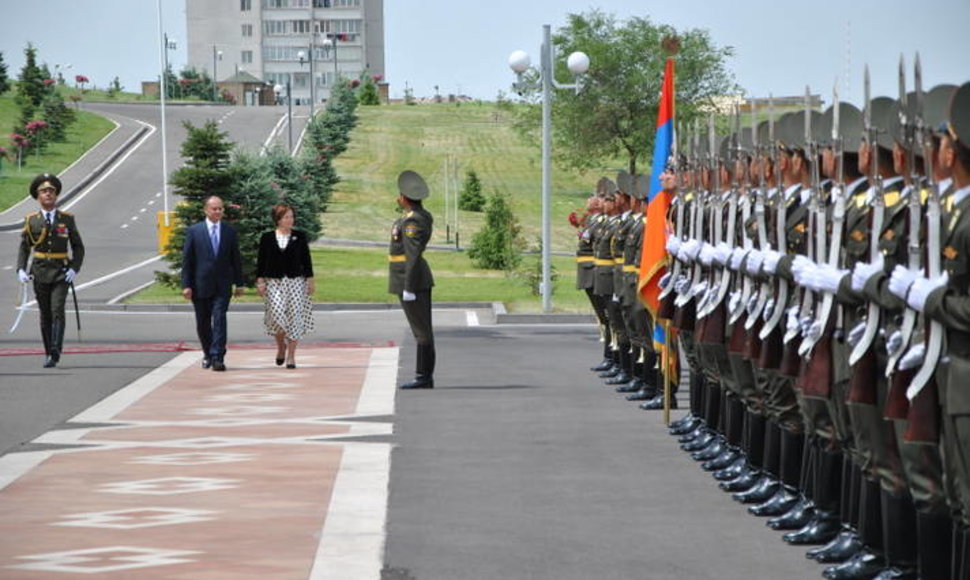Juknevičienė said the meeting with the Armenian leader focused on the Nagorno-Karabakh conflict and regional security issues.
Russia, the United States and France are acting as mediators as part of the OSCE Minsk Group in the conflict between Armenia and Azerbaijan.
"I can only say, and I said that to the Armenian president, that we in Lithuania see that perhaps some countries, I wouldn't want to name them now, which act as mediators, are interested in the status quo position. As we see many conflicts in the former Soviet Union, ongoing and frozen, and it seems sometimes that not all parties are interested in the resolution," Juknevičienė said when asked whether all mediating countries held the same position.
According to the Lithuanian defense minister, Lithuania's position on the regulation of this conflict matches the European Union's position that there can be no status quo and that a solution must be found.
"And the second thing is that there can be no alternative to a peaceful resolution of this conflict. Any attempts to solve this issue by force would be unacceptable to the international community, including Lithuania. I assured the president that the EU has the same goals, and that it's very important to build up trust," the Lithuanian minister said.
Juknevičienė underlined that attempts to back one side or the other "would undermine the process." She also added that she felt during the meetings Armenia's wish to step up cooperate with NATO member countries.
"I felt great wish that cooperation between Armenia and NATO member countries like Lithuania increased so that they could keep the balance in their foreign policy and among various structures. As far as I understood relations with NATO member countries is very important for them," Juknevičienė said.
Backed by the Armenian authorities, Armenians living in Nagorno-Karabakh control of the region following the war in the 1990s when over 30,000 people were killed. The international community does not recognize the region's independence.
Nagorno-Karabakh has been a hot-spot despite the 1994 truce that ended the war between Armenia and Azerbaijan. Thousands of Russian troops are still deployed in Armenia, helping to protect the country's borders.
2012 06 25
Lithuanian Defense Minister: Some forces are interested in Armenian-Azerbaijani conflict to remain unchanged
There are people among mediators in the Yerevan-Baku negotiations on Nagorno-Karabakh who want the complicated situation in the region to remain unchanged, Lithuanian Minister of National Defense Rasa Juknevičienė, currently visiting Armenia, told BNS following Monday's meetings with Armenian President Serzh Sargsyan and the country's Minister of Foreign Affairs Eduard Nalbandyan.
Report mistake
Successfully sent
Thank you












